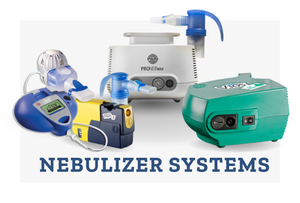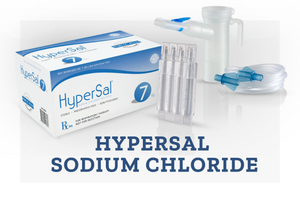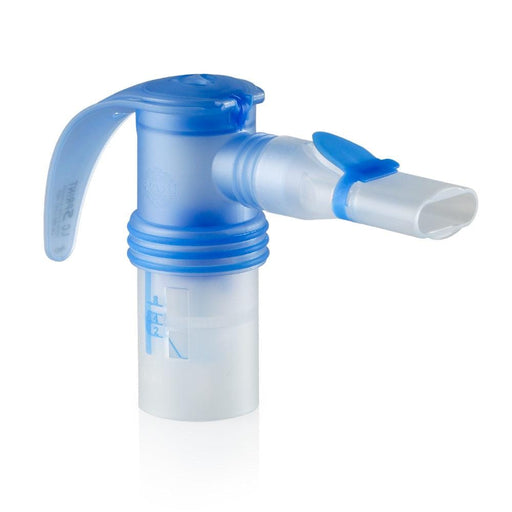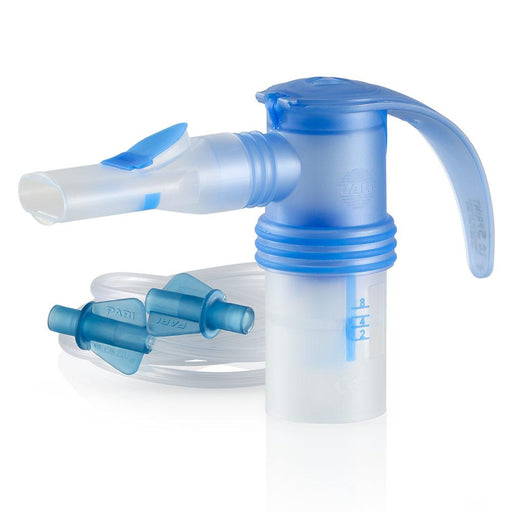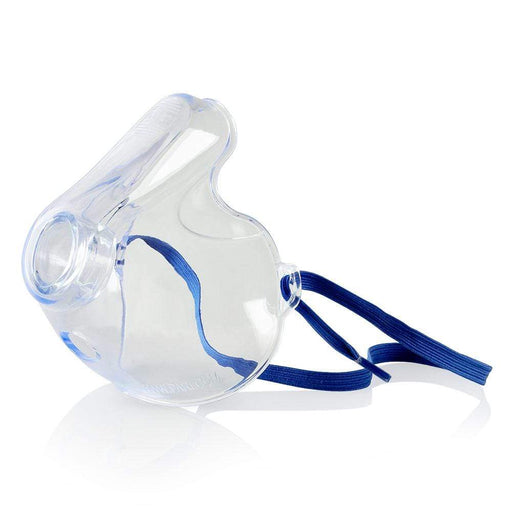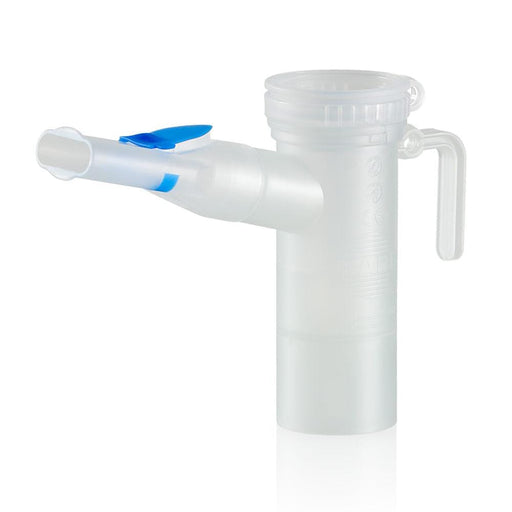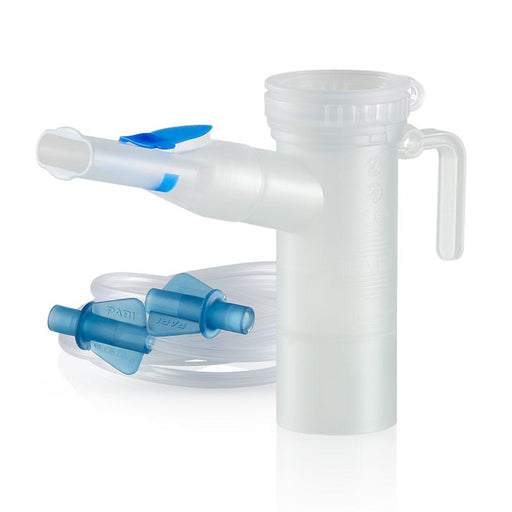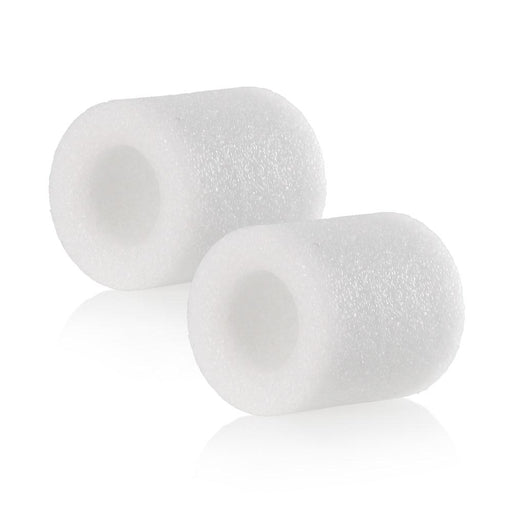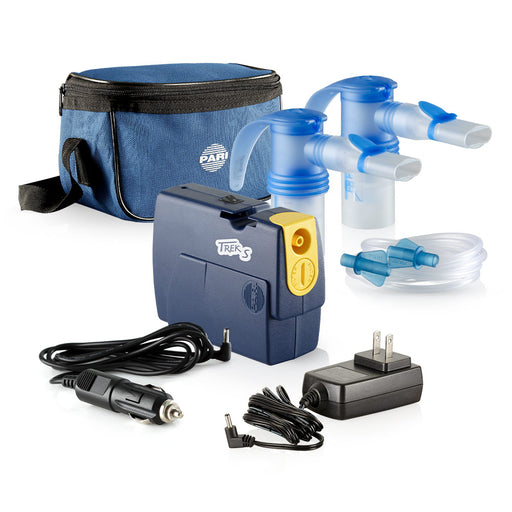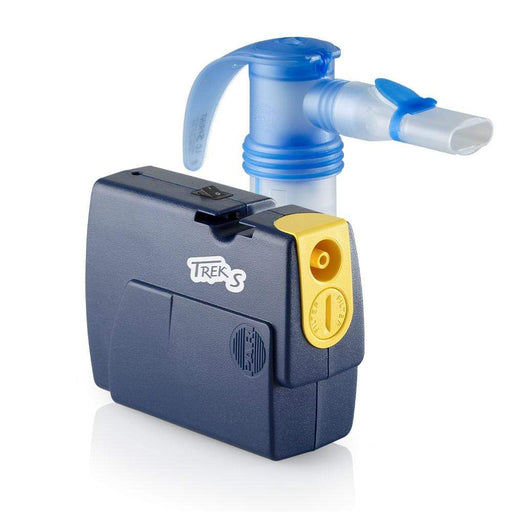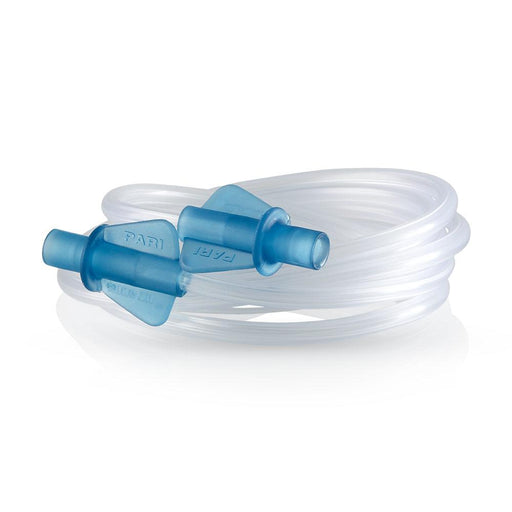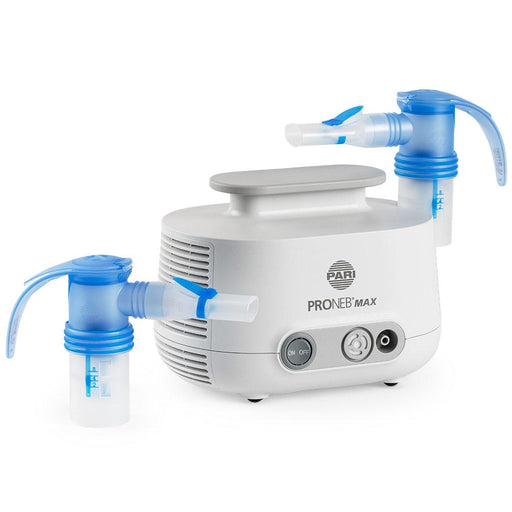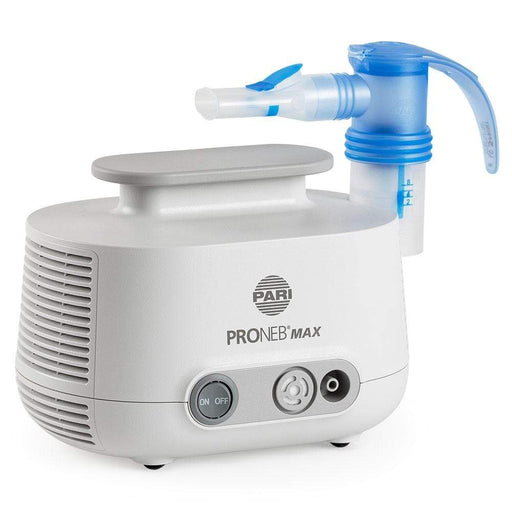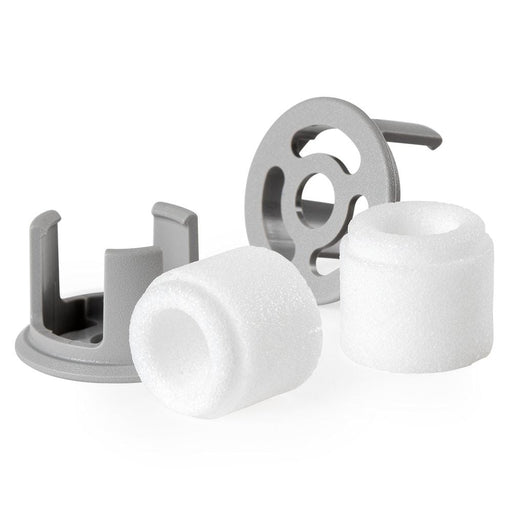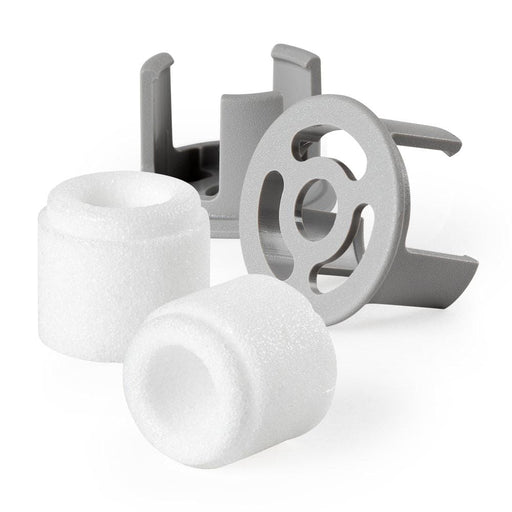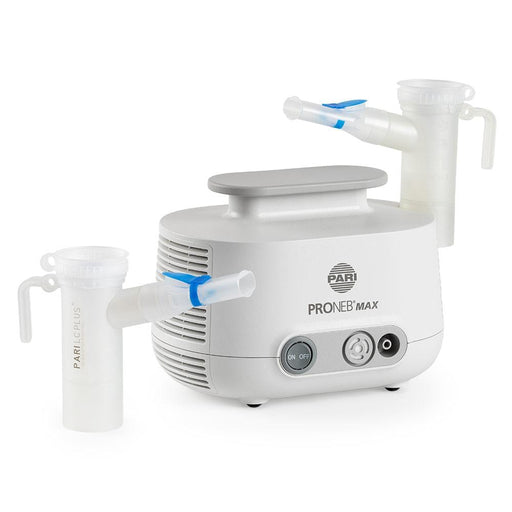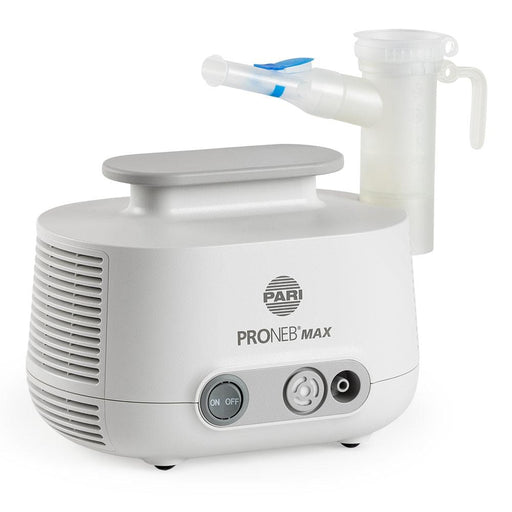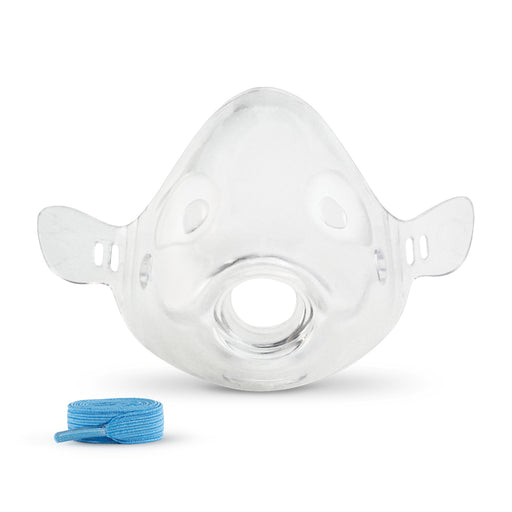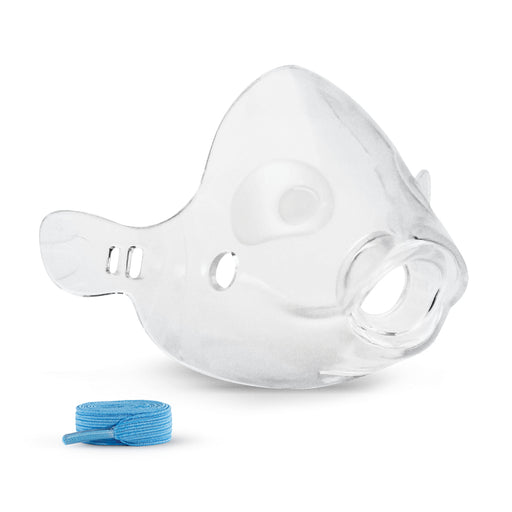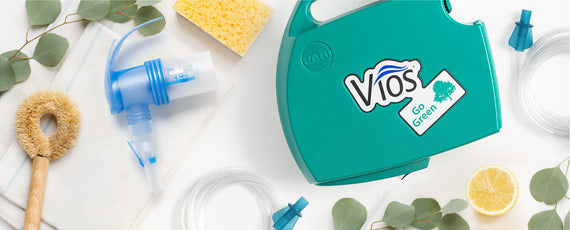
What’s Going On with My Nebulizer System?: Troubleshooting & Fixes
Are your treatment times taking just a little bit longer each day? Does your nebulizer system seem weaker than before, or noisier than it used to be? How often should you be replacing your system filters and neb cup, or should you just buy a brand new one altogether?
After years of helping customers work through problems and frustrations like these, we've seen just about every scenario imaginable. This article presents Nebology's Tips & Tricks for diagnosing common system problems and highlights the importance of proper nebulizer system maintenance for getting maximum health benefits from your aerosol treatments.
FIRST, CHECK YOUR TUBING
Your device's tubing is similar to the tires on your car—you never think about them until there's a problem. In our experience, however, a vast majority of system issues can be corrected simply by checking your tubing! Most people check that the nebulizer system’s tubing is secure to their neb cup before each treatment without even thinking about it, but rarely consider checking that the tubing is still securely fastened to the air compressor unit. The vibration of the unit will often cause the tubing to work itself off after several treatments, so checking this is always one of the simplest and easiest things to consider.
Another common tubing problem is that kinks can develop over time, no different from a garden hose, when the tubing kinks air can't pass through. This can dramatically decrease the pressure reaching your neb cup, increasing the amount of time it takes to nebulize the medicine, as well as putting undue stress on the compressor as it fights to push that air through the constricted section.
The last item to consider when checking your tubing is condensation, or a build up of moisture within the tube. With enough use, the air passing through the inside of the tubing can make just enough temperature difference compared to the ambient temperature outside it, causing tiny moisture droplets to form. Picture your iced tea sitting out on the porch on a warm summer afternoon as droplets form on the outside of your glass. This is essentially what's happening on the inside of your tubing, just on a much smaller (and slower) scale. While the moisture is natural and will minimally affect treatment efficiency at first, with time there can be enough residual water in the nebulizer tubing to significantly restrict airflow.
In the case of your tubing being loose or simply bent in an odd manner, these are easy fixes. But with more serious kinks and moisture collection, it's highly recommended to just replace your system's tubing.
HOW OLD IS YOUR NEB CUP?
PARI Neb cups were engineered in Germany, and are designed to far outlast most all other neb cups on the market. So why do we, and medical professionals, recommend replacing your nebulizer every six months? To ensure optimal medication delivery from your nebulizer, it is recommended to replace the cup after six months of use, as performance may decline after this timeframe.
We at Nebology feel these two points of nebulizer maintenance can't be stressed enough to follow manufacturer's instructions for cleaning and disinfection, such as the example shown below:
-
Thoroughly disassemble and wash your nebulizer cup with dish soap and hot water between each treatment, and allow adequate time to dry before using again. And while it's not completely necessary, know that PARI Nebulizers can be cleaned in a dishwasher as well—just be careful that the individual pieces are secured so that they won't fall into the heating element during the wash cycle.
-
When in doubt, swap it out. If your nebulizer cup looks even the slightest bit discolored or dirty, don't use it! Better safe than sorry, and your health isn't something to take chances on.
One last point to mention here is cup assembly. PARI LC Neb cups are user-friendly, however, we have seen some cases where the nebulizer parts weren't properly aligned or secured into place when put back together after use or cleaning. If your nebulizer is relatively new and in otherwise good shape, but doesn't seem to be performing correctly, then check that all the components including the inner baffle, top valves, and mouthpiece are all firmly and securely situated into their proper places.
COMPRESSOR FILTERS
Yep, your machine has to breath too. All PARI air compressor units have a filter that should be changed every six months, or with the same regularity as your neb cup. This ensures that the air intake on the system base is adequate and unrestricted, allowing it to output at its maximum potential. Think of it like your car's air filter, or one of the filters to the central air conditioning in your house. As dust, dirt, and other air pollutants begin to collect on the filter, the airflow becomes restricted and puts increasingly higher strain on the system over time.
PRO TIP: To remove the air filter on most PARI compressors, use a coin (we think nickels work best!) and remember the rhyme that works with almost any screw-type item: Lefty Loosey, Righty Tighty. From there, the filters simply pop in and out and can easily be reinserted into the front or side of the unit in a reverse manner.
Other than the air filter, PARI compressor units are otherwise unserviceable at home. While it doesn't affect performance, we do recommend regularly wiping the device with a damp cloth and light dish soap or vinegar in cases of something getting on it. If your tubing, neb cup, and air filters are all in good shape, and all other considerations mentioned have been checked. If you're finding you're your nebulizer treatments aren't producing as much aerosol or mist as they used to, they're taking longer, or the machine itself just sounding too loud or incorrect—then please contact us immediately so that we can assess the situation and if needed, begin the warranty process with PARI on your compressor unit. It's very rare for a compressor to fail, but sometimes it does happen.
Enjoy Your Fixed Nebulizer System
This sums up the most typical performance problems we see customers dealing with on a daily basis and the importance of regular maintenance of your PARI nebulizer system. Hopefully this article has helped you assess and correct any small issues you've been experiencing, or at the very least given you some considerations for keeping your system in optimal working condition. If you continue having issues with a system you've purchased from us, please don't hesitate to reach out to your customer service support team, available by email or phone:
STILL HAVE QUESTIONS?
Mon-Fri 9am to 5pm ET
EMAIL: info@nebology.com
SHOP CLINICALLY PROVEN NEBULIZER SYSTEMS & SUPPLIES
-
PARI LC Sprint Reusable Nebulizer Cup & Tubing: Speed & Comfort Combined
Original price $15.95 - Original price $15.95Original price$15.95$15.95 - $15.95Current price $15.95In stockOriginal price $15.95 - Original price $15.95Original price$15.95$15.95 - $15.95Current price $15.95 -
PARI LC Adult Aerosol Mask: Comfortable, Effective Medication Delivery
Original price $6.00 - Original price $6.00Original price$6.00$6.00 - $6.00Current price $6.00In stockOriginal price $6.00 - Original price $6.00Original price$6.00$6.00 - $6.00Current price $6.00 -
PARI LC Plus Reusable Nebulizer Cup & Tubing: Reliable Aerosol Delivery
Original price $15.95 - Original price $15.95Original price$15.95$15.95 - $15.95Current price $15.95In stockOriginal price $15.95 - Original price $15.95Original price$15.95$15.95 - $15.95Current price $15.95 -
Filters for PARI Vios, Ultra II, and Trek S System - 2 Per Package
Original price $9.45 - Original price $9.45Original price$9.45$9.45 - $9.45Current price $9.45In stockOriginal price $9.45 - Original price $9.45Original price$9.45$9.45 - $9.45Current price $9.45 -
PARI Trek S Portable Nebulizer System with LC Sprint: High-Quality On-the-Go Therapy
Original price $79.00 - Original price $189.00Original price$79.00 - $189.00$79.00 - $189.00Current price $79.00In stockOriginal price $79.00 - Original price $189.00Original price$79.00 - $189.00$79.00 - $189.00Current price $79.00 -
PARI Wing Tip Tubing: Secure, Tangle-Free Connection for Better Treatments
Original price $8.00 - Original price $8.00Original price$8.00$8.00 - $8.00Current price $8.00In stockOriginal price $8.00 - Original price $8.00Original price$8.00$8.00 - $8.00Current price $8.00 -
PARI PRONEB Max Nebulizer System with LC Sprint: Powerful & Efficient
Original price $99.00Original price $99.00 - Original price $99.00Original price $99.00Current price $84.99$84.99 - $84.99Current price $84.99In stockOriginal price $99.00Original price $99.00 - Original price $99.00Original price $99.00Current price $84.99$84.99 - $84.99Current price $84.99Sale -
Filters for PARI PRONEB Max System (2 Per Package): Clean, Efficient Treatments
Original price $9.95 - Original price $9.95Original price$9.95$9.95 - $9.95Current price $9.95In stockOriginal price $9.95 - Original price $9.95Original price$9.95$9.95 - $9.95Current price $9.95 -
PARI PRONEB Max Nebulizer System with LC Plus: Effective Heavy-Duty Therapy
Original price $99.00Original price $99.00 - Original price $99.00Original price $99.00Current price $84.99$84.99 - $84.99Current price $84.99In stockOriginal price $99.00Original price $99.00 - Original price $99.00Original price $99.00Current price $84.99$84.99 - $84.99Current price $84.99Sale -
PARI Bubbles Pediatric Aerosol Mask: Gentle, Fun Treatments for Kids
Original price $5.95 - Original price $5.95Original price$5.95$5.95 - $5.95Current price $5.95In stockOriginal price $5.95 - Original price $5.95Original price$5.95$5.95 - $5.95Current price $5.95

